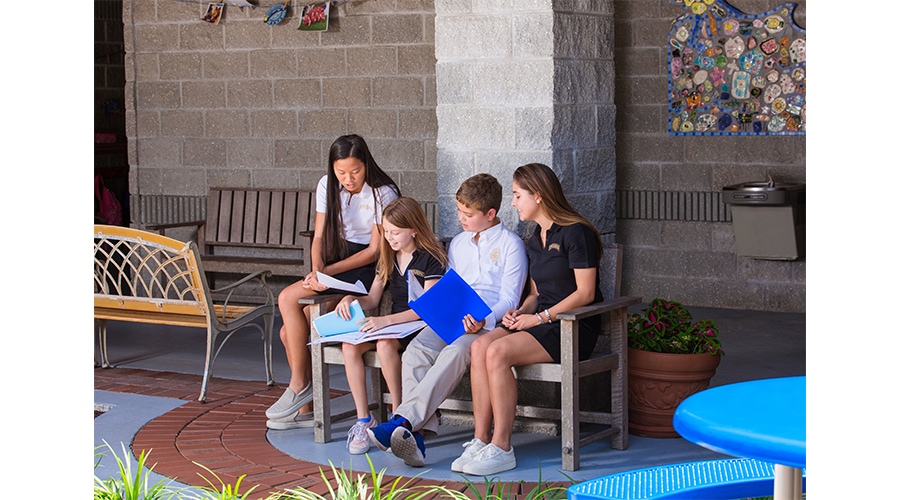
Asking the Right Questions in Your School Search
Asking the Right Questions in Your School Search
Sam Hyde Geisler ’00, Executive Director of Admission and Enrollment at Episcopal School of Jacksonville
As an Admission Director, I am often asked, “My family is considering changing schools (or just starting school). Where do we start, or what do you recommend?” Many parents simply don’t know what they don’t know and aren’t sure what to ask. Whether you’re just starting to explore preschool and daycare options, or if you’re facing a school transition because your child is in the final grade at their current school, or they just need a new environment, here are some critical questions to explore:
What are our family’s core values?
We all have a tendency or hope to find a magic bullet answer for any decision, but the reality is that we almost always have to reflect internally before we can move forward. In the context of school choice, questions you should establish before beginning may include: Is faith important? Do you place high emphasis on academic performance? What is your approach to discipline? Are you interested in your children specializing in one particular area or do you place more emphasis on a well-rounded experience? Put the pen to paper to articulate these thoughts. Being firm in your own values and beliefs will help you discern which schools align with your family.
What does my child need/want to be successful?
Assess the needs of each child in your family to find the right fit where each child can thrive. One may do best in a highly competitive environment, while another may need a specialized program for their learning needs. One may have a passion for science, while another may excel in athletics or arts. Be sure to prioritize the necessities over the “would-be-nice” items.
How many students do teachers teach in one day?
There are wonderful teachers at every school. However, even the best teachers can only do so much when they have a high volume of students. For example, what a teacher can do with a class of 15 versus a class of 30 is very different. At the middle or high school level, multiply that by five periods a day, and it’s a difference between 75 and 125. That becomes the difference in a multiple choice test and critical thinking short answers. It impacts personalization and differentiation. Understanding this statistic will be more helpful than the teacher:student ratio, which can be somewhat misleading.
Where do students go after this school?
This applies at every stage. For preschools, do most students go to the neighborhood public school or a private school? For elementary and middle school, is the school a feeder for particular middle and high schools? And for high schools, do most/all graduates go to college and if so, does the school have a college list for the most recent graduating class (or a few classes)?
What logistics can my family manage and what transportation do the schools provide?
This is almost always one of the first barriers for families, especially in a city the size of Jacksonville. Think about what’s manageable for your family, mainly when it comes to transportation and meals. Do not write off a school because of a perceived barrier – be sure to ask about transportation and meal options, explore carpooling, and consider other alternatives.
Is this school accredited, and if so, by what accrediting body?
As you may have noticed, new schools are popping up left and right. Public, private, independent, charter, magnet, classical, hybrid… the list goes on. I cannot emphasize enough the importance of doing your own research to understand the differences among types of schools, how/if they are accredited and how they are funded. This information should be on most school websites, and if not, be sure to ask. The answers to these questions will influence everything from curriculum to after school programs.
Can we afford an independent school?
The greatest barrier to a family considering a private or independent school is tuition. Many families take one look at tuition and immediately assume they can’t afford it. Do not let tuition scare you – most independent schools have financial assistance programs that make them accessible to a diverse population of families. Be sure to ask schools about financial aid and other funding options. These are confidential discussions that schools welcome and encourage.
Once you have considered the answers to these questions and come to a determination as to what is important to you, do some research online and call schools that might be a good fit for your child/family to schedule a tour. You may get lucky and find a school that suits all of your children, or you may end up navigating the logistics of multiple schools in order to provide the best environment for each child. Be open to considering any and all options, and you’re bound to land where you’re meant to be.

